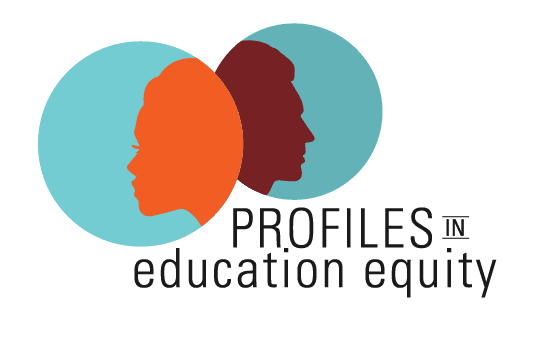Profile in Education Equity: Educare DC
Educare Washington DC is a full-day, year-round early childhood program in Ward 7 serving 304 children ages 6 weeks to 5 years, and their families. Last year, Educare DC was…

Educare Washington DC is a full-day, year-round early childhood program in Ward 7 serving 304  children ages 6 weeks to 5 years, and their families. Last year, Educare DC was among a small group of DC programs recognized with the new High Quality designation from Capital Quality, the Quality Rating and Improvement System (QRIS). Educare DC is a part of the national Educare network of schools that provide high-quality early childhood education (ECE) for children from vulnerable communities.
children ages 6 weeks to 5 years, and their families. Last year, Educare DC was among a small group of DC programs recognized with the new High Quality designation from Capital Quality, the Quality Rating and Improvement System (QRIS). Educare DC is a part of the national Educare network of schools that provide high-quality early childhood education (ECE) for children from vulnerable communities.
As executive director, Pyper Davis provides the overall leadership of Educare DC, while Jamal Berry currently serves as deputy director. The pair shares how they continue to serve families during the coronavirus pandemic, the challenges that ECE providers face, and how they’re looking ahead to the “new normal.”
[Pyper Davis] The first thing in my mind was the safety of families and staff. As a Head Start program, Educare is designed to serve the most vulnerable children and their families, providing not only high-quality early learning, but a suite of wraparound services to children and their families. The idea they would not have the daily support (such as health, nutrition, parent support related to housing, food insecurity, education, etc.) of coming to Educare was a big concern for all of us.
[Jamal Berry] Educare’s work is centered around children and families. In our decision-making, we considered the support we provide for children’s learning and development, what families would do without childcare and without the other important resources that Educare provides families (such as food, diapers and health supports), and the safety of all those in our building (families, children, staff, service providers, and more). After weighing all these factors, along with guidance from DC and the Center for Disease Control, we decided to close our program. But we are committed to continuing to support our children and families remotely.
Immediately following our decision to close, our entire team packed two days’ worth of food to send home with each child, along with diapers and wipes and a resource list of local food providers. We also assembled and distributed 300 age-appropriate activity kits and a calendar of at-home learning activities, and recorded learning activities and tutorials to share with families via our social media channels. Our family engagement team established a support hotline for parents to speak with an on-call staff member for support on things from parenting to their rights regarding relief and assistance.
And our work hasn’t stopped just because our building is closed. Our teachers are continuing to work with our children, providing lessons virtually and connecting with parents regularly. Teachers are continuing regular professional development online, through communities of practice, and meeting with their instructional coaches/master teachers.
Our family engagement team reaches out to families weekly to check-in and is using a set of screener questions to continually assess family needs. Through the data we collect, we were able to gauge family needs related to their critical material needs and provide support related to mental health and other challenges during this difficult time. In partnership with the DC Diaper Bank, we are providing diapers and food to our families. We also know the needs of our families are reflective of the needs of other families in the DC community, so we opened the diaper supplies bank up to all families in the community. Neval Thomas Elementary School, next door to Educare, is also a daily food distribution site.
[Pyper Davis] The fact that Educare is not reliant on a single funding stream has also helped us during this challenging time. And our public funders all provided guidance to help us make the decision to close. For example, the Office of Head Start recommended that programs follow their local public schools in deciding about closing, and committed that they would continue to fund programs based on enrollment and not on attendance. In addition, the District continued to fund state funded pre-K programs, like Educare, and to fund child care subsidy (through Child Care & Development Block Grants allocations). These public funding streams — together with generous private funders — make up Educare’s primary funding sources, and they are fortunately keeping us afloat and allowing us to pay staff salaries and other costs during this crisis.
Other centers are not so lucky. According to a recent NAEYC survey, 30% of childcare programs say they would not survive a closure of more than two weeks without significant public investment and support that would allow them to compensate and retain staff, pay rent or mortgages, and cover other fixed costs. Childcare programs operate with little revenue in the best of times, so those small business owners face a genuine tension between maintaining their livelihood and keeping children, families and themselves safe and healthy under the threat of COVID-19. And it’s especially tough when you don’t know when you will reopen.
The other aspect of Educare’s model is our focus on policy and advocacy. Not only are we thinking about the decisions related to our specific program, but we are thinking more broadly about the ECE system and how all programs are working through the challenges, and what policy changes might be needed to better support the ECE system. As a direct service provider, we are able to connect those directly impacted (families and ECE teachers) to the policymaking table.
[Jamal Berry] Like everyone around the country, this is the first time we have ever needed to respond to a crisis of this magnitude. We continue to learn throughout this experience. We are focused on part of our model — continuous program improvement. So, moving forward, we will improve the emergency plans that we have developed and think about remote operations more fully. Childcare already has a lot of guidance related to health and safety, and we will have strengthened those routines to protect our children, family, and staff. Data collected through our family needs screener has shown that 20% of our families have experienced a job loss due to the crisis. While we already provide a number of supports and resources to our families, we will likely need to increase and shift the types of resources based on the needs of our families. We will need to be innovative as we return to our new normal.
[Jamal Berry] For our youngest learners, a break in routine and continuity of care impacts their learning and development. We can try to provide these things through distance learning, but we know it’s not the same. It will take time to rebuild the relationships and the routines that helped our children develop and thrive.
The ECE system is vulnerable and many childcare centers operate on frighteningly thin margins and only manage to stay afloat by paying their teachers poverty-level wages. We are worried that families will have even less access to high-quality affordable childcare and many ECE teachers will lose their jobs. We can’t afford to lose programs and teachers. A high-quality ECE system is key to giving all children, especially those most in need a strong start. According to Dr. James Heckman’s great research, quality early learning can positively impact multiple generations, so if we let our already fragile childcare system crumble after this pandemic, we are creating a multi-generational setback, particularly for low-income communities of color.
[Pyper Davis] One of the interesting questions that has come out of this COVID-19 crisis is: Does ECE fall under the “education” category or under the “essential services/infrastructure” category? Should we automatically close ECE programs when public schools close, because if it isn’t safe for 5-year-olds or 10-year-olds, it probably isn’t safe for 2-year-olds? Or do we think of ECE as some sort of essential infrastructure, like the Metro trains and buses that need to run to transport people? Or is there some other category that we have just failed to clearly define, which is why we are struggling about what the “rules” are during this crisis? These are important questions to consider as we ponder what is important and as we reflect on our national values.
So, my question for policymakers is this: How can we give families viable options so that their children can grow and learn in a quality environment while the adults in the family work or look for a job or further their education? We should use this crisis to invest in building a system that simultaneously supports our country’s adults who will need to resume normal work or find new jobs and provides quality early learning to prepare our next generation to thrive in what will surely continue to be a complex world.